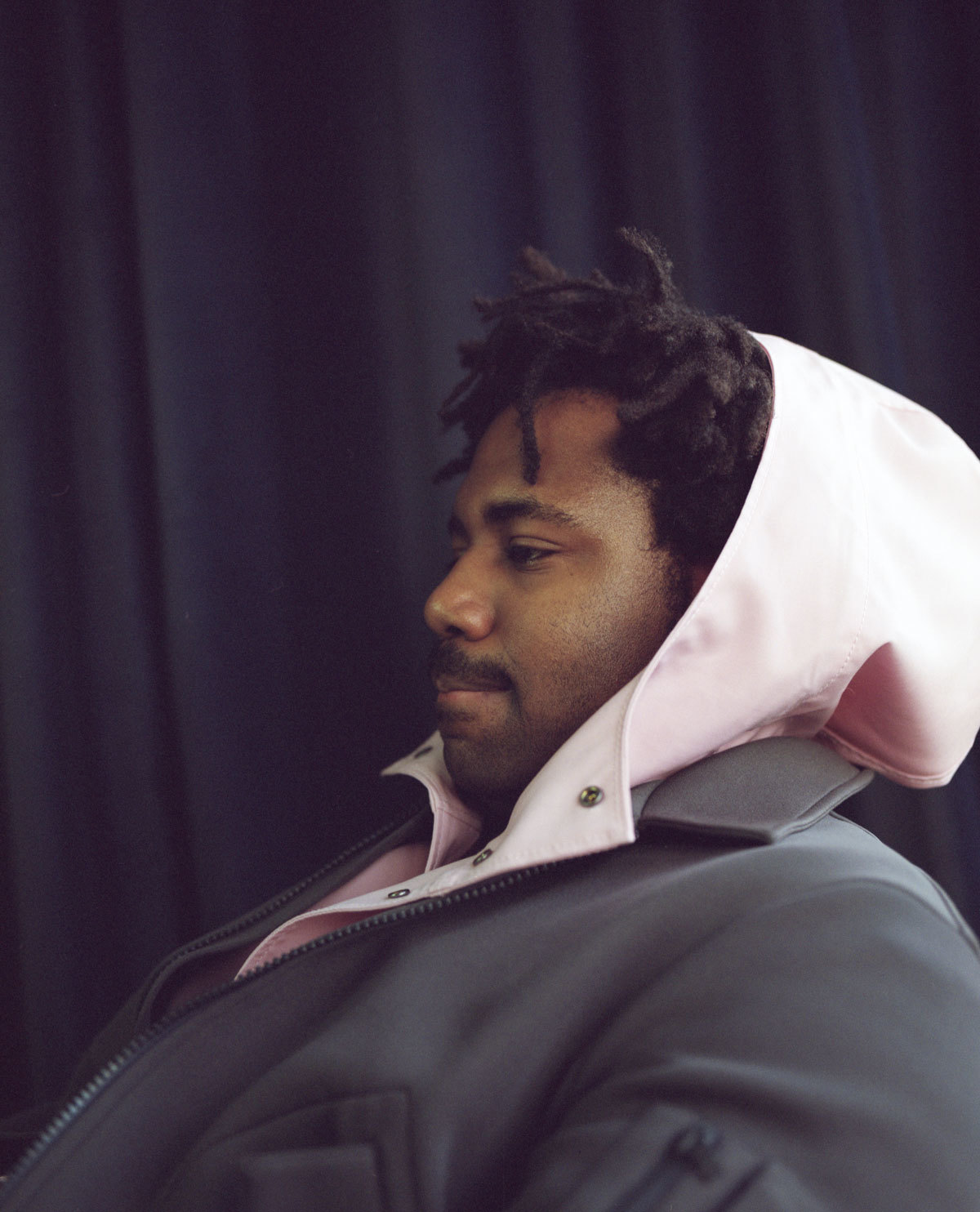To listen to producer, songwriter and singer Sampha Sisay is to know and feel love, in all of its various mutations. The cold despair of heartbreak, the hopeful uncertainty of a new relationship, the overwhelming devastation of losing loved ones. “Dual,” Sisay’s July 2013 EP is simply exquisite. Over 26 minutes — five songs and two extended interludes — he ponders the death of his father (“Can’t Get Close”), longing (“Without”) and the loss of Amy Winehouse (“Indecision”).
Haunting and often haunted, “Dual” is a deeply intimate, revealing EP, recorded in his childhood home, Morden. “It was a real labor of love, although for me, there are a lot of imperfections in the recording techniques,” he points out. “I find it difficult to write songs. Really, I prefer to produce. With songwriting, I’ll create the music first and then write a main melody, and then I’ll write the rest of the song to paint a verbal picture on top of the music. It’s not the most natural process.” Yet his tracks emanate the opposite; they’re effortlessly moving, heart-stoppingly simple yet riddled with a complexity that stays with you for hours, days, months, years after the first listen.
Critically well received, the EP, with its powerfully flawed perfection, has seemingly prevented Sampha from releasing much else since. Though a new album is “taking form”, the 26-year-old admits he’s hesitant about releasing it. “I’m always a bit wary. I should be a bit more open, I suppose, but if a singer I love starts putting out bad tunes, I start listening to them differently. I’m never confident about how people will experience my new music. I suppose it’s just a bit of insecurity about sharing it.” He hasn’t become a total recluse though; he released the double a-side Too Much/ Happens and can be heard on production and vocal duties on Katy B’s Little Red album and SBTRKT’s latest triumph, Wonder Where We Land.
His big breakthrough came, of course, when Drake reconfigured “Too Much” for his 2013 album, Nothing Was The Same. “It does give me confidence, because they don’t have to say they like my music,” he admits of working in Toronto with Drake and Noah “40” Shebib. “There are already so many talented people out there. I have my own judgements and measurements, and sometimes I’m just looking for someone to acknowledge it.”
The Sampha story, he says, began at the age of three years old. “The time I watched Walking In The Air on video. I kept thinking, ‘This is tripping me out…'” Around this time, Sampha’s dad bought a piano from some neighbors. “I would sit there and play all the black keys. It became a preoccupation, a distraction.” His dad encouraged his sons to explore music, buying Sampha and his four older brothers a new CD each week: “I was lucky to have my ears opened from such a young age.” Then, when he was nine, his father died.
“I guess for me it was a scarcity thing [experiencing death]. You understand that time’s running out very fast, or can suddenly stop. You haven’t got enough time and you feel paralyzed. You’re reversing. Life is difficult,” he says, punctuating the solemn sentence with a shy grin. “Growing up, going through your adolescent phases, being honest in terms of your thoughts. The difficulties of finding the energy to figure it out, family life, dealing with death, life, illness… It rained heavy on me at a certain time in my life, which colored my music throughout.” Why does he make music? “Because I get into a zone, I forget about everything when I’m writing lyrics, that’s when I have to concentrate on things going on in my life. That’s why I find it hard, because you have to be brutally honest. Who really knows why we’re so entrenched in who we are? I don’t know why a major or minor chord makes me feel a certain way, even the way we process certain tones is amazing. A song like Donny Hathaway’s “Someday You Will Be Free” can change my mood instantly. That’s the one thing you can’t detach from yourself, the feelings that music can give you. Music feeds into our nature, it’s almost parental in a sense, something that keeps you company.”
Sampha began producing on his brother’s copy of Reason at the age of 13 and wrote his first song, “Rainstars,” at 18. He finally broke through five years later, in 2011, with “Valentine,” a duet he produced and vocalled with Jessie Ware. Since then, he’s worked with contrasting collaborators including Drake and SBTRKT of course, but also Lil Silva, Solange and Koreless, with who he made his first EP, “Sundanza.” His new record is more “production heavy” he says and will hopefully come out early this year on Young Turks. He may be unsure how people will react, but it seems implausible that this man could strike a wrong chord. There are people that make music because they want to be famous, rich, acknowledged, to fill a hole in their lives. Sampha, it seems, makes music because he has to. “I hope people find a sense of comfort, or freedom, in my music. I hope that it sparks something imaginative or that it gives them the confidence to sing. If anyone connects to it, that’s great because it’s the most insular world and I don’t know how anyone’s really feeling. No one can feel the lump in my throat, apart from me — but I can sing about it.”
Credits
Text Hattie Collins
Photography Olivia Rose
